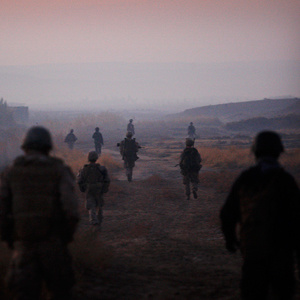Dead in the Water
Commentary by Nozar Shafi’e, Afghanistan affairs analyst

How could the international community solve the problem of Afghanistan? I believe that ‘regional cooperation’ is the key to the ever-complicated situation in this country. To bring peace and stability to war-ridden Afghanistan, the international community should invite regional actors, most importantly Iran, Pakistan and India, into the game and turn them into active players. Domestic actors inside Afghanistan and Pakistan should also be involved. The specter of terrorism is looming over the entire world and to quell this vile phenomenon, regional and international parties should be engaged alike.
In their security decisions, Afghanistan and Pakistan will have to act in compliance with security and foreign policies of the United States. Their mission is fitted within the general strategies of Americans. Afghanistan and Pakistan do not have the freedom to decide independently and regardless of United States point of view. Take the involvement of the Pakistani army in war against terrorism as an instance. Clearly it was not a decision made in upper security and political echelons of the country, but a part of the AfPak strategy designed by United States diplomatic apparatus. The same is true for Afghan army’s involvement in the conflicts. The security and military game plans of the United States, as the hegemon power, determine the inception of such operations. However, U.S. AfPak strategy is doomed to failure if the Americans forget Iran’s role and the need for coordinated act between Iran, Afghanistan and Pakistan.
Throughout the historical developments of Central Asia and South Asia, Iran’s role has always been undeniable. No developments and no plans in this region could be carried out unless they define a role for Iran, particularly in situations when Iran’s national interests are also affected. All U.S. plans will be dead in the water if it keeps on overlooking Iran’s regional power.
In their security decisions, Afghanistan and Pakistan will have to act in compliance with security and foreign policies of the United States. Their mission is fitted within the general strategies of Americans. Afghanistan and Pakistan do not have the freedom to decide independently and regardless of United States point of view. Take the involvement of the Pakistani army in war against terrorism as an instance. Clearly it was not a decision made in upper security and political echelons of the country, but a part of the AfPak strategy designed by United States diplomatic apparatus. The same is true for Afghan army’s involvement in the conflicts. The security and military game plans of the United States, as the hegemon power, determine the inception of such operations. However, U.S. AfPak strategy is doomed to failure if the Americans forget Iran’s role and the need for coordinated act between Iran, Afghanistan and Pakistan.
Throughout the historical developments of Central Asia and South Asia, Iran’s role has always been undeniable. No developments and no plans in this region could be carried out unless they define a role for Iran, particularly in situations when Iran’s national interests are also affected. All U.S. plans will be dead in the water if it keeps on overlooking Iran’s regional power.

